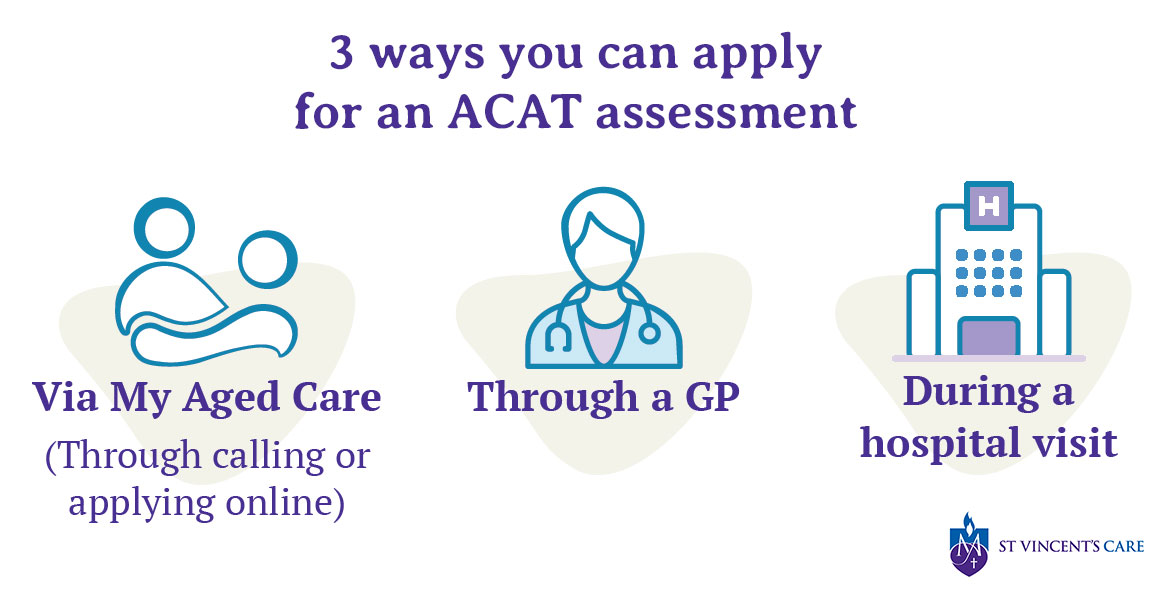Are You Eligible For a Home Care Package? [11 Example Scenarios]
Posted 1st November 2024 | 4 minute read
Written by Jesse Gramenz  Reviewed by Kristopher McMurdy
Reviewed by Kristopher McMurdy 

Are you eligible for a Home Care Package? When could I get government funding for your care at home? And when wouldn’t you? Let’s find out.
The Basics of Home Care Package Eligibility
First of all, to be eligible for a Home Care Package, you have to be assessed through My Aged Care.
And you can only be assessed through My Aged Care if you are 65 years or older (50 years or older for Aboriginal or Torres Strait Islander people)
In addition, according to the My Aged Care website:
You may be eligible if you have:
- noticed a change in what you can do or remember
- been diagnosed with a medical condition or reduced mobility
- experienced a change in family care arrangements, or
- experienced a recent fall or hospital admission.
The quickest way to see if you’re eligible or not is on the My Aged Care website’s eligibility checker.
Find St Vincent's home care near you:
4 scenarios where you might be eligible for a Home Care Package (in order of the level of care)
1. Mild Assistance with Daily Living
- Scenario: Jane, aged 75, has some mobility issues due to arthritis. She can still live independently but needs help with light housekeeping tasks like cleaning, laundry, and meal preparation. She also feels more comfortable with some social support and companionship.
- Eligibility: Jane may be eligible for a Level 1 HCP to assist with basic care needs and keep her socially engaged while allowing her to remain at home.
2. Moderate Support with Personal Care
- Scenario: John, aged 82, has early-stage dementia and lives with his wife. He is still relatively independent but needs help with showering, dressing, medication reminders, and occasional respite (carer breaks) for his wife, who is his primary carer.
- Eligibility: John might qualify for a Level 2 HCP, which offers more frequent personal care assistance and support for both him and his carer.
3. High-Level Care for Complex Needs
- Scenario: Mary, aged 89, has multiple chronic conditions, including diabetes and heart disease. She needs daily monitoring of her health, assistance with personal care, mobility aids, and meal preparation. Mary also requires regular nursing visits to manage her medication and wound care.
- Eligibility: Mary could be eligible for a Level 3 HCP, which provides higher-level care services like nursing, allied health support, and assistance with activities of daily living.
4. Intensive Support for Severe Frailty
- Scenario: Tom, aged 92, is frail and has limited mobility due to advanced Parkinson’s disease. He needs comprehensive assistance with all daily activities, including personal care, continence management, meal preparation, transport, and frequent nursing care to manage his condition.
- Eligibility: Tom would likely be eligible for a Level 4 HCP, which is for people with the highest level of care needs and provides ongoing intensive support to help him remain at home.
Bonus: Respite for a Primary Carer
- Scenario: Sarah, aged 85, cares for her husband, who has severe dementia. She is feeling burnt out and in need of regular respite care. While her husband does not want to move into residential care, Sarah requires help to take breaks from her caring role.
- Eligibility: Sarah’s husband may be eligible for a Level 3 or 4 HCP, which can offer respite care and other services like day programs or short-term in-home care to relieve Sarah’s caregiving responsibilities.
6 Scenarios where you wouldn’t be eligible (or it wouldn’t be helpful to apply) for a Home Care Package
1. Younger Adults Without Age-Related Needs
- Scenario: Mark, aged 45, has a physical disability but does not have any age-related health concerns. He needs assistance with mobility, personal care, and accessing community services. However, because he is under 65 and his needs are related to disability rather than aging, he doesn’t qualify for Home Care Packages or Commonwealth Home Support Program (CHSP).
- Eligibility: Mark may not be eligible for HCP but could qualify for support under the National Disability Insurance Scheme (NDIS), which is designed to help individuals with disabilities under the age of 65.
2. Healthy Older Adults
- Scenario: Susan, aged 67, is active, healthy, and able to manage her daily living tasks independently. She enjoys walking, cooking, and socializing and does not require assistance with personal care or household chores.
- Eligibility: Susan may not be eligible for a Home Care Package as she does not have significant health or functional impairments. The assessment focuses on care needs, and since Susan has none, she wouldn't qualify for services.
3. High-Level Medical Care Requirements
- Scenario: Bob, aged 88, has advanced dementia and is bedridden. He requires constant supervision, assistance with all daily tasks, and regular medical interventions. Due to the severity of his condition, he cannot safely live at home, even with home care support.
- Eligibility: Bob may not be eligible for home care services and would be recommended for residential aged care, where he can receive the high-level, continuous medical care and supervision required.
4. Hospital-Level Care Needs
- Scenario: Lisa, aged 72, has recently undergone major surgery and requires complex medical care, including intravenous medications and daily medical monitoring, which cannot be provided at home.
- Eligibility: Lisa would not be eligible for home care services, as her needs require hospital-level care. Home care would not be suitable for her level of medical treatment and supervision. But Lisa might be able to engage a Home Care Package for ongoing clinical care in the home beyond the initial recovery period.
5. Non-Permanent Residents
- Scenario: Ahmed, aged 70, is living in Australia on a temporary visa while visiting family. He has some care needs related to mobility and medication management but does not have permanent residency status in Australia.
- Eligibility: Ahmed would not be eligible for government-subsidized home care services like HCP or CHSP, as only Australian citizens or permanent residents qualify for these programs.
6. Living Overseas or Traveling Extensively
- Scenario: Patricia, aged 80, spends most of her time traveling between Australia and Europe, staying overseas for several months each year. While she may need occasional support, her frequent travels make it difficult for her to access ongoing care services.
- Eligibility: Patricia may not qualify for ongoing home care services as she is not residing in Australia for the majority of the time, which is a requirement for accessing consistent home care support.
These scenarios highlight situations where individuals may not be eligible for home care packages based on age, residency status, or the type of care required.
How do I apply for a Home Care Package?
The next step if you think you are eligible for a Home Care Package is to apply for an ACAT Assessment.
An ACAT Assessment will help determine the level of care you need to live better at home.
From there. You'll need to do an income and means assessment test from the Australian government.
The combination of both an ACAT assessment and the income assessment will tell you not only the level of care you need, but also the amount you’d have to contribute towards it.

Parting Thoughts
While the eligibility and application process for Home Care Packages can seem a little daunting, the reality is, you don’t know if you can get extra support at home until you try to apply.
We encourage everyone who thinks they might be eligible to book in for an ACAT assessment because it’s better to have it and not need it then it is to need it and not have it.
Remember, that even if you don’t think you’re eligible for a Home Care Package, there are other support avenues we can help you to receive.
For more information on Home Care Packages and our in-home care services, you can call St Vincent’s Care on 1800 778 767.
Still have questions?
CHAT TO OUR AGED CARE EXPERTS